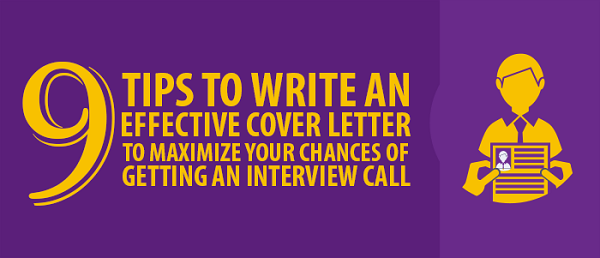If a resume is the steel framework of a building, then a cover letter is its brick and mortar. This document accompanies your resume, filling the gaps and completing the structure. Addressed directly to a prospective employer, it is a more personal document than the resume itself.
With a cover letter, you are introducing yourself and explaining why you are fit for the job. A well-written cover letter helps you stand out from the crowd and increases your chances of being shortlisted for an interview. It is important to customise your letter for different job profiles and companies. It may seem like a time-consuming task, but a personalised cover letter is the best way to market yourself as a potential candidate for the post.
Here are some pointers to keep in mind while writing a cover letter:
1. Keep your cover letter short and precise
Hiring managers have only a few seconds to go through your application. Keep your cover letter short and precise. A half-page long cover letter is ideal, and it should never be longer than one full page. Resist the temptation to use clichés. Instead, lend your own voice to your pitch.
2. Open with precision
Don’t waste your words on lengthy opening lines that do not say much. Save the hiring manager’s precious time by getting directly to the heart of the matter.
3. Explain why they should short-list you
Briefly mention your educational and professional background and connect it to why it makes you the right candidate for the job. The point of writing a cover letter is to convince your prospective employer to call you for an interview. Read the job description, then pick out three or four points from your resume and link them to how they will help you perform the tasks mentioned in the job description.
4. Use your cover letter to provide additional information
Use the cover letter to provide information about yourself that is not available in the resume. If there is an anecdote which you think may interest your prospective employer, this is the place to mention it. You could also use this platform to plug any hole that exists in your resume, like an employment gap.
5. Impress with numbers
Hiring managers are always looking for tangible ways to assess a candidate’s worth. Quoting a few numbers that showcase your past achievements is a sure way to get them interested. It will also tell them that you are result-driven and understand their concerns.
6. Emphasise on what value you can add
Mention the skills you bring to the table instead of focusing on how great the job will be for your career. Read up on the organisation’s mission, values and objectives to gain a deeper understanding of the company you are applying to. Then use this information to bring out why you think you would be a good fit for the organisation.
7. Don’t be excessively formal
Being excessively formal or verbose sometimes has the unintended effect of making the writer seem mechanical and insincere. Don’t treat the hiring manager as your friend, but don’t adapt a wordy or stiff tone either. Aim for an easy, professional tone in your letter.
8. Edit before sending
Edit the document, run a spell check and ask someone else to read it as well. One of the surest ways of blowing your chances for progressing to the interview stage is to have an error creep into your resume or cover letter.
9. Be yourself
Finally, just be yourself. People can tell when you’re being fake – even in a letter.
Cover letters are the first opportunity you have to impress an employer. Naturally, there’s a lot of pressure to get it right. Take professional help if required, but make that first touch point with your prospective employer a great one.
You may also like:




